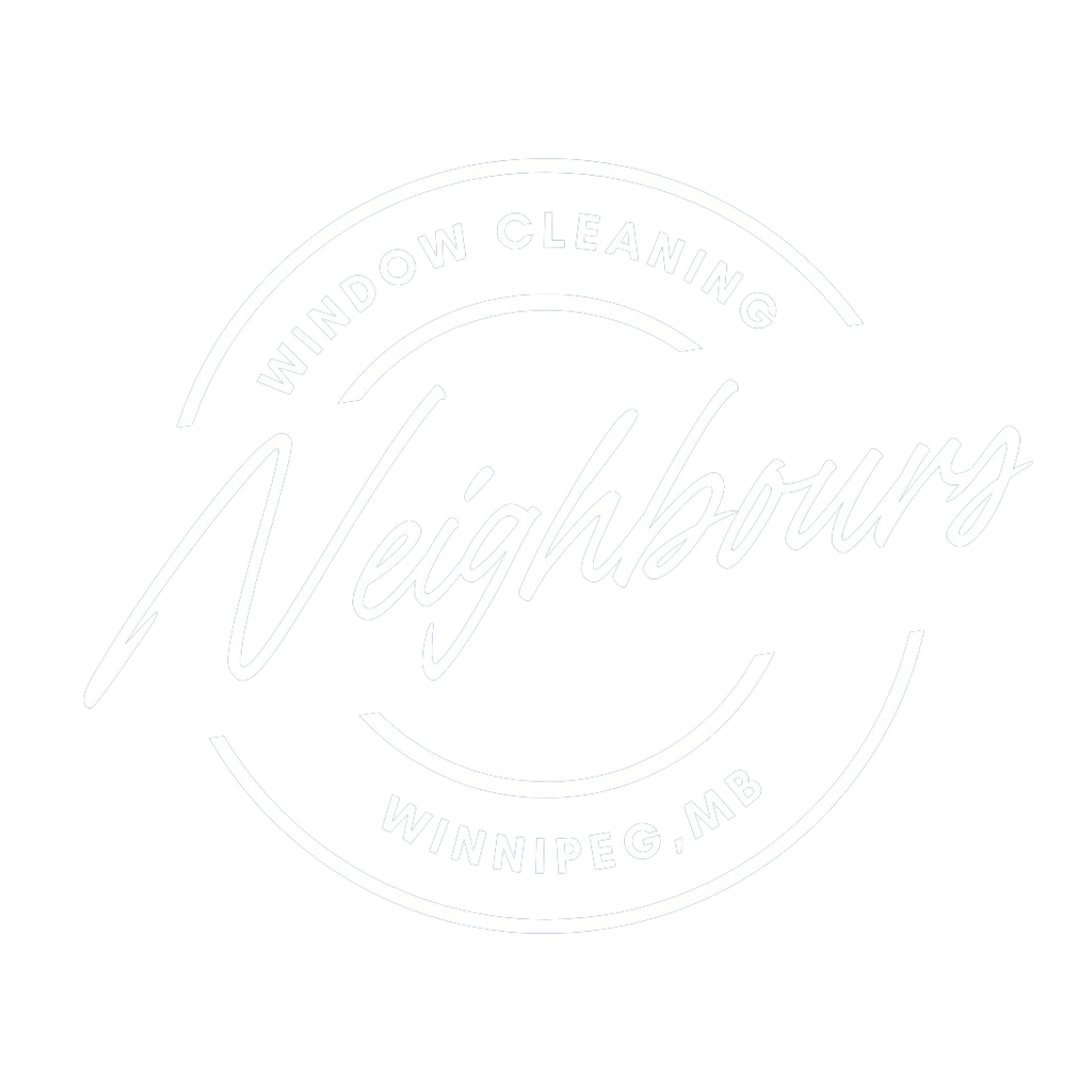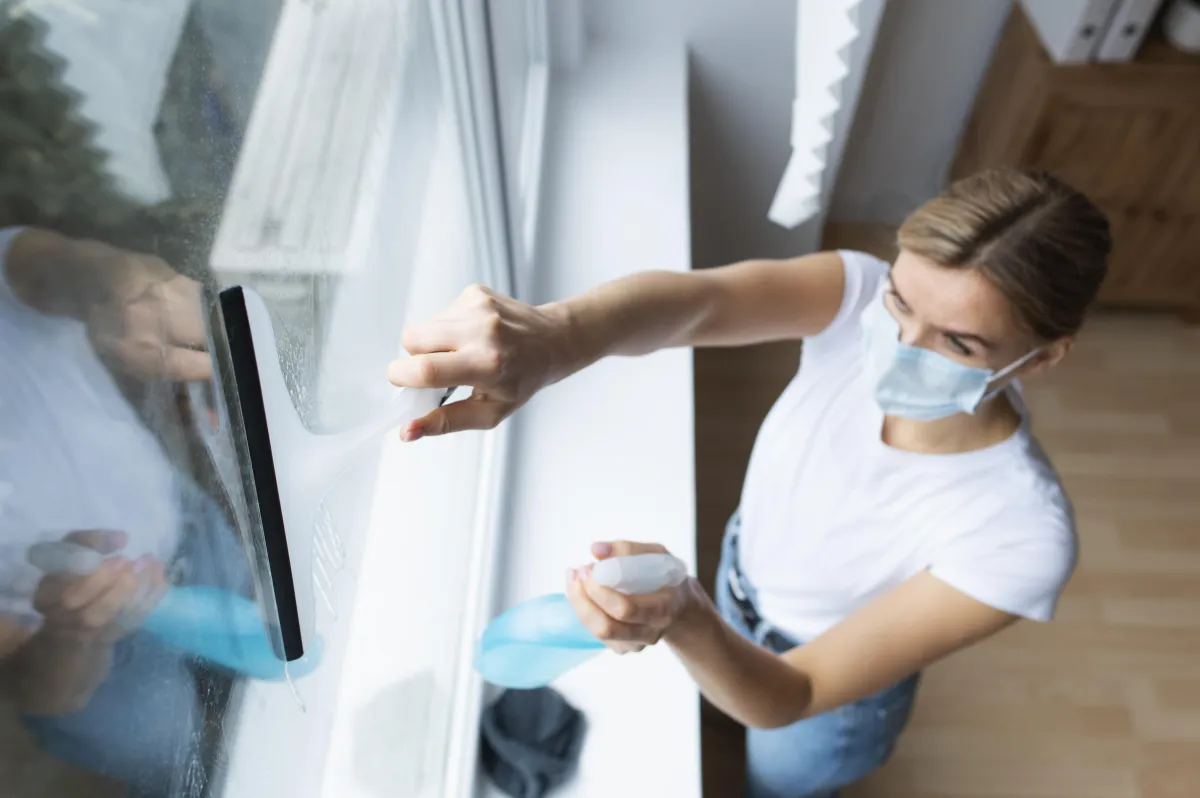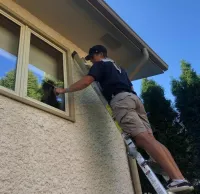
MEET THE Neighbours Pet of the week!
Hey, I'm Cleo!
I am a good helper.
I enjoy meeting my neighbours
I like walking all around Charleswood!
Featured Services In Winnipeg
Our Process
At Neighbours Window Cleaning, we believe in making our professional cleaning services simple, safe, and hassle-free. Here's what you can expect from us:
O1
Initial Consultation:
We begin with a comprehensive assessment of your cleaning needs. Our team provides detailed estimates for window cleaning, pressure washing, or screen restoration services, ensuring complete transparency in pricing and scope of work.
O2
Professional Assessment
Our experienced technicians arrive on schedule to evaluate your property's requirements. We identify optimal cleaning methods, note special considerations, and prepare a customised approach for your surfaces.
O3
Expert Execution
We implement our proven cleaning process using professional-grade equipment and eco-friendly solutions. Our team protects your property while delivering exceptional results that exceed your expectations.
Read our blog!

Store-Bought Vs. Homemade Window Cleaning Solutions - Which One To Choose!
Sparkling, streak-free windows can remake the entire look of a home. Yet standing in the cleaning aisle, staring at rows of commercial window cleaners, while knowing a simple vinegar solution sits at home, creates a genuine dilemma for homeowners everywhere.
This choice matters more than most people realise. The right window cleaning solution affects not just the clarity of glass surfaces, but also household budgets, indoor air quality, and even the environment.
What Actually Makes Windows Clean?
Understanding how window cleaners work removes much of the guesswork. Every effective window cleaning solution relies on surfactants, compounds that break the surface tension of water, allowing it to spread and lift away dirt and grime.
Store-bought cleaners typically combine surfactants with solvents like isopropyl alcohol or ammonia. These ingredients dissolve oils and cut through stubborn residues that water alone cannot touch. The blue tint in many commercial cleaners? That's usually just dye for brand recognition, offering no cleaning benefit whatsoever.
Homemade solutions work differently. Vinegar contains acetic acid, which cuts through mineral deposits and light grime. When mixed with a drop of dish soap (which provides surfactants) and water, this combination creates a surprisingly effective cleaning agent. The pH level sits around 2.5 to 3, making it acidic enough to dissolve dirt without damaging glass.
Key Takeaway: Both approaches use chemistry to clean, just with different active ingredients. Commercial cleaners offer stronger solvents, while homemade versions rely on gentler acids.
The Store-Bought Ones For Convenience & Power Cleaning
Commercial window cleaners dominate the market for good reasons. Ready to spray right out of the bottle, these products save precious time during weekend cleaning sessions.
Professional cleaning companies like us, Neighbours Windows, consistently choose commercial-grade products for challenging jobs. One of our technical experts suggests that,
"When dealing with years of built-up grime, hard water stains, or environmental pollutants, commercial formulas deliver results that homemade solutions simply cannot match."
The specialised formulas matter too. Ammonia-free options exist for tinted windows. Anti-static formulas repel dust. Foaming cleaners cling to vertical surfaces longer, providing extra dwell time for tough stains.
However, these benefits come with trade-offs. Many conventional cleaners contain volatile organic compounds (VOCs) that contribute to indoor air pollution. A 2023 study published in Environmental Health Perspectives found that regular use of chemical cleaners can irritate respiratory systems, particularly affecting children and individuals with asthma.
The plastic packaging creates waste, and prices typically range from $3 to $8 per bottle, costs that accumulate quickly for households that clean windows monthly.
Homemade Solutions Are The Budget-Friendly Alternative
The appeal of homemade window cleaners extends beyond just saving money, though the economics are compelling. A gallon of white vinegar costs roughly $3 and produces enough solution for months of window cleaning.
The Classic Recipe That Works:
2 cups water
2 tablespoons white vinegar
2 tablespoons rubbing alcohol (optional, for faster drying)
1-2 drops dish soap
Mix these ingredients in a spray bottle, shake gently, and the solution stays effective for up to two weeks. Adding a few drops of lemon essential oil provides a pleasant scent without synthetic fragrances.

The environmental advantages resonate with eco-conscious homeowners. Reusable spray bottles eliminate single-use plastic waste. Natural ingredients biodegrade harmlessly. No harsh chemical fumes linger in living spaces after cleaning.
Yet homemade solutions have limitations. They struggle against heavy grease, especially in kitchen windows near stovetops. Extremely hard water stains may require multiple applications. The vinegar smell, while temporary, bothers some people during application.
Neighbours Windows recommends homemade solutions for regular maintenance, but suggests keeping a commercial cleaner on hand for problem areas. The best approach combines both methods strategically..
What Actually Works?
Testing both types of cleaners against common window problems reveals interesting patterns.
For light dust, fingerprints, and everyday smudges, homemade vinegar solutions perform nearly identically to store-bought cleaners. The difference becomes negligible when proper technique is used with quality microfiber cloths.
Hard water stains tell a different story. Commercial cleaners with stronger acids or chelating agents remove mineral deposits more effectively. A homemade solution requires longer dwell time and more elbow grease to achieve similar results.
Grease presents the biggest challenge for DIY cleaners. Kitchen windows splattered with cooking oils need the stronger solvents found in commercial products. The surfactants in dish soap help, but cannot match the degreasing power of ammonia-based formulas.
Technique Matters More Than A Window Cleaning Solution
Even the best cleaning solution fails without proper application. Professional window cleaners attribute 60% of their results to technique rather than product choice.
The squeegee makes the biggest difference. This simple tool, used with an overlapping S-pattern from top to bottom, eliminates streaks that cloth-wiping often leaves behind. Quality matters here as rubber blades should be soft and free from nicks.
Microfiber cloths outperform paper towels significantly. Their fine fibres trap particles rather than pushing them around, and they leave no lint behind. Newspaper, an old favourite, works but transfers ink residue on humid days.
Timing affects results, too. Cleaning windows in direct sunlight causes solutions to evaporate too quickly, leaving streaks. Overcast days or early morning provide ideal conditions for both homemade and commercial cleaners.
Expert Suggestion from Neighbours Windows
Apply the solution to the window frame first, then the glass. This prevents drips from creating streaks on freshly cleaned surfaces. Always wipe frames dry with a separate cloth to avoid transferring dirt back onto the glass.
Cost Analysis Of Store-Bought vs. Homemade Window Cleaning Solutions
Breaking down actual expenses reveals the true financial picture.
A typical store-bought window cleaner ($5 per 32-ounce bottle) provides roughly 200 sprays. Cleaning 20 windows monthly uses about one bottle, totalling $60 annually.
Homemade solution ingredients cost approximately $5 total and produce enough cleaner for an entire year of the same cleaning schedule. Even factoring in the $8 cost of a quality spray bottle, first-year savings exceed $45.
Over five years, the cost difference reaches $250, enough to purchase several other household items or invest in professional cleaning services for special occasions.
However, this calculation assumes willingness to invest time in mixing solutions. For households where time carries premium value, the convenience of store-bought cleaners may justify their higher cost.
Health and Safety Considerations
Chemical exposure from window cleaning products rarely causes acute problems, but cumulative effects matter.
Ammonia fumes irritate eyes, skin, and respiratory passages. Prolonged exposure to poorly ventilated spaces can trigger headaches and nausea. Children and pets face higher risks because they spend more time at floor level, where heavier chemical vapours settle.
Homemade vinegar solutions produce strong odours but lack toxic properties. The acetic acid smell dissipates quickly with proper ventilation, leaving no harmful residues.
Safety protocols apply to both options. Always clean windows with adequate airflow. Never mix commercial cleaners together; combining ammonia with bleach-containing products creates dangerous chloramine gas. Store all cleaning solutions, whether homemade or store-bought, out of children's reach in clearly labelled containers.
Finding the Right Balance
The best window cleaning strategy rarely involves choosing exclusively one option. Smart homeowners keep both solutions on hand, deploying each where it performs best.
Use homemade cleaners for:
Regular maintenance cleaning (every 2-4 weeks)
Interior windows with light soiling
Homes with young children or pets
Budget-conscious households
Environmentally focused cleaning routines
Choose store-bought cleaners for:
Exterior windows with heavy environmental buildup
Kitchen windows with grease splatter
Hard water stain removal
Time-sensitive cleaning before guests arrive
Windows that haven't been cleaned in months
This hybrid approach maximises both cost savings and cleaning effectiveness. Regular maintenance with inexpensive homemade solutions prevents heavy buildup that would require commercial-strength products.
Quick Reference Guide
FAQs
Does vinegar damage window seals, glass, or tinting?
Addresses a major safety and damage concern related to the most common DIY ingredient.
Which window cleaning tool (microfiber, paper towel, or newspaper) prevents the most streaks?
Focuses on the application technique, which is the second biggest variable in achieving a streak-free result after the solution itself.
Can I use dish soap in my homemade window cleaner, and will it cause streaks?
Addresses a common ingredient people want to use for grease-cutting, but which is also a primary cause of streaking if used incorrectly.
What specific ingredients in store-bought cleaners should I avoid if I have pets or children?
Directly addresses the health and safety comparison, which is a core theme and a major reason people choose homemade.
How do I prevent my windows from getting streaky when cleaning on a hot, sunny day?
Addresses the most common mistake people make and the biggest pain point in window cleaning.
Key Takeaways
Chemistry Works Both Ways! Commercial cleaners use stronger solvents; homemade solutions rely on gentler acids, but both effectively remove dirt through different mechanisms.
Technique Trumps Product! Proper squeegee use and microfiber cloths matter more than choosing between store-bought or DIY cleaners.
Hybrid Approach Win! Use homemade solutions for regular maintenance; keep commercial cleaners for tough jobs like grease and hard water stains.
Safety Matters! Vinegar solutions pose minimal health risks, while ammonia-based cleaners require proper ventilation and careful handling.
Environmental Impact! DIY cleaners reduce plastic waste and chemical runoff, making them the greener choice for eco-conscious households.
The Final Decision
Personal circumstances ultimately determine the best choice. Budget-conscious renters benefit most from homemade solutions. Busy professionals may find store-bought convenience essential. Environmentally focused households lean toward DIY options.
The good news? This decision isn't permanent. Experimenting with both approaches costs little and reveals which method fits best with lifestyle, values, and specific window cleaning needs.
Clean windows enhance natural light, improve curb appeal, and create a sense of order in living spaces. Whether achieving this with homemade vinegar spray or commercial formulas matters far less than simply maintaining the habit of regular cleaning.
Start with a homemade solution for the next cleaning session. If results satisfy expectations, continue and enjoy the savings. If not, trying a commercial cleaner provides an immediate comparison. Either way, clearer windows and an informed choice await.
If you need help from a professional, contact Neighbours Windows for a quick window cleaning spree in Winnipeg.
READY TO GIVE US A TRY?
Get Started for Free Today!
Revamp your property's appearance with Winnipeg's trusted cleaning professionals. Be it anything, a need for crystal-clear windows, powerful pressure washing, or thorough screen cleaning, we're ready to deliver exceptional results that will satisfy you completely.
COMPANY
CUSTOMER CARE
CONNECT
GET A FREE QUOTE

© Copyright Neighbours Window Cleaning. All Rights Reserved.







